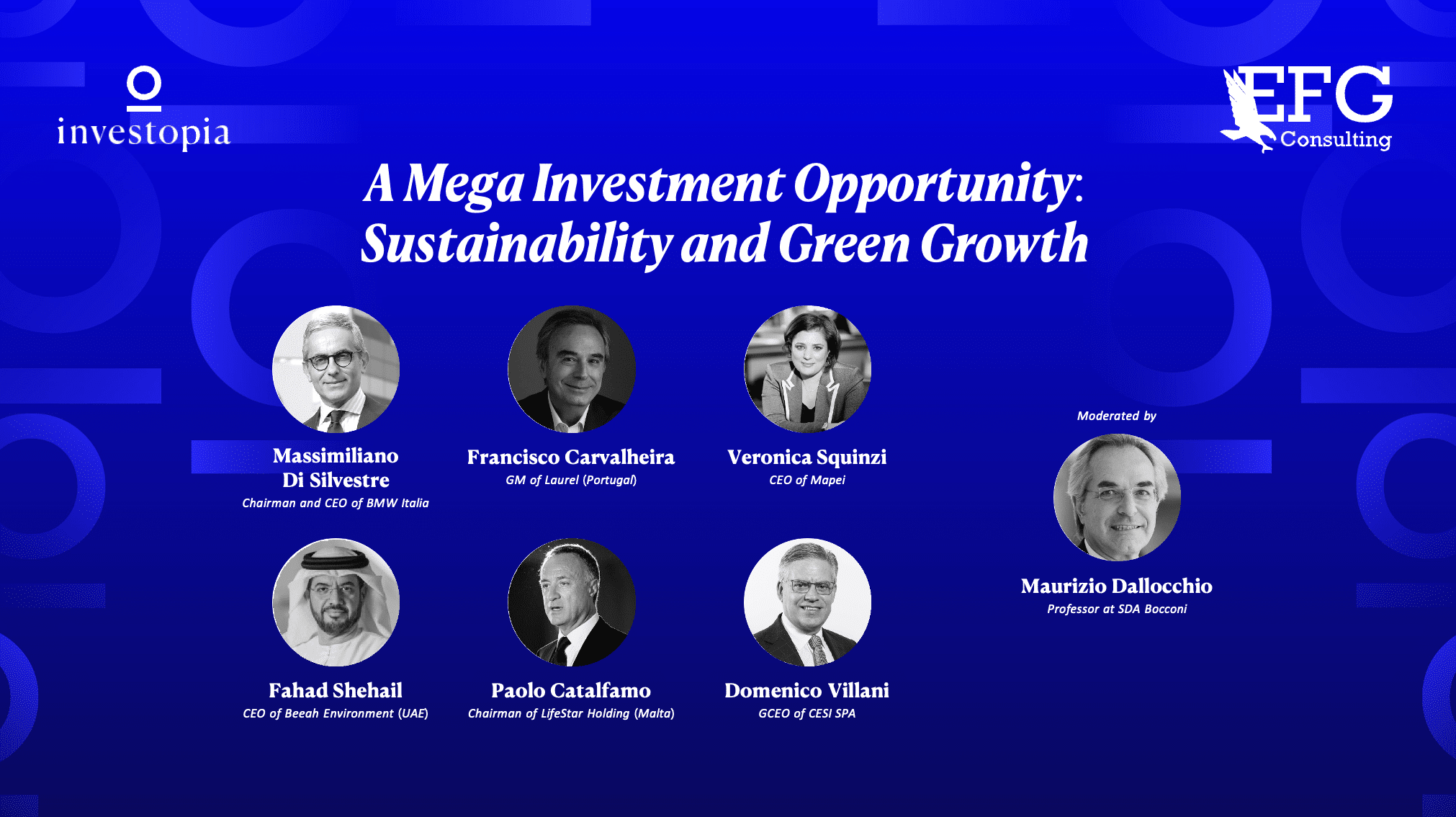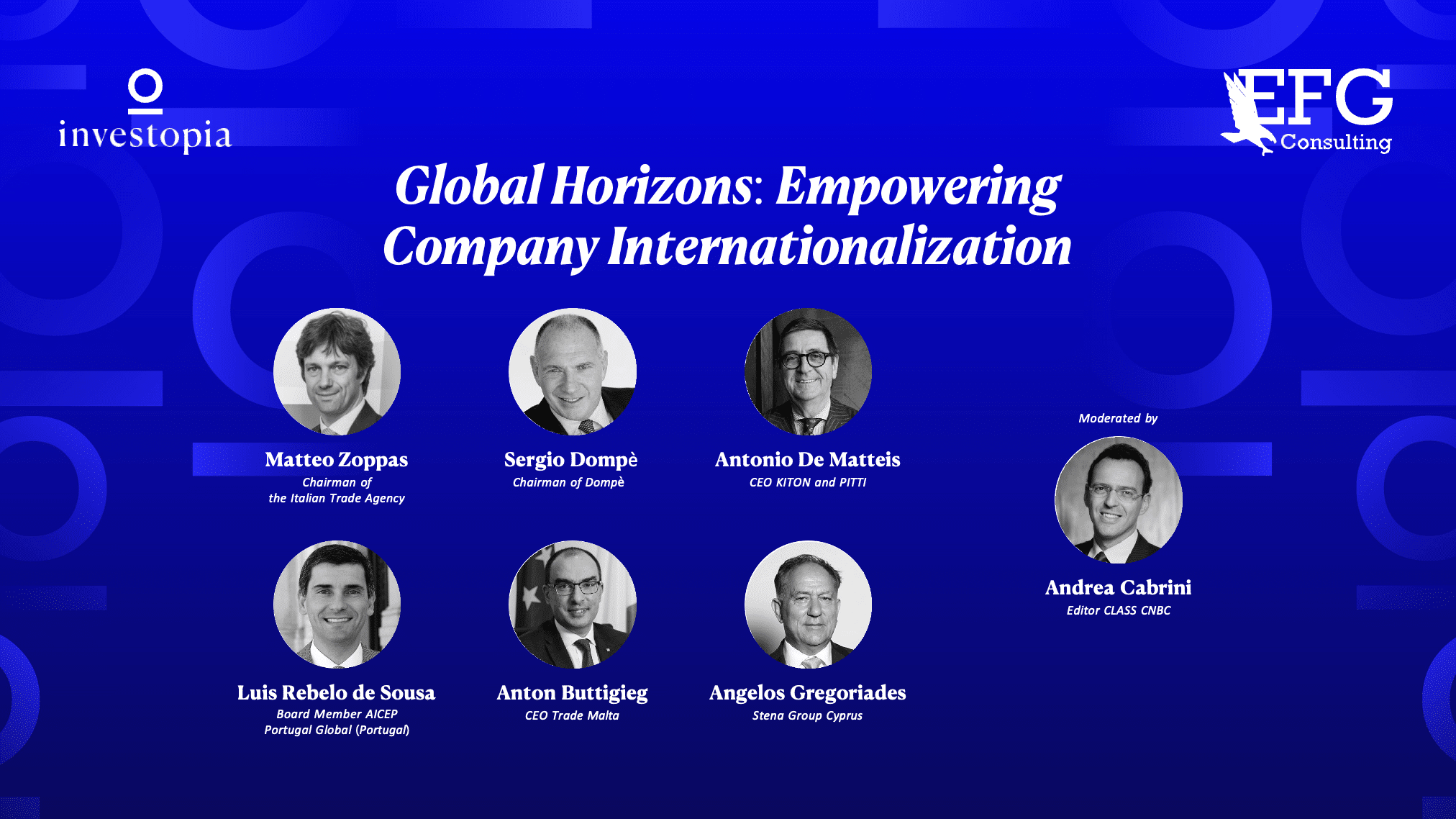Session Speakers:

Chris Rhodes
President of ICE Futures

Cinzia Chiriac
Global Head of ESG Regulatory Affairs, Bloomberg

H.E. Sameh Al Qubaisi
Group Head of Global Markets at First Abu Dhabi Bank (FAB)

Kathryn Mintoft
Head of Sustainability and ESG – UK & EMEA at Citi

Mary Anne Scicluna
Senior Executive Director - Supervision, FSRA at ADGM
Share
Key Takeaways
- The integration of digital platforms in carbon credit trading enhances risk management and efficiency.
- Significant financial commitments by major banks are crucial for advancing the sustainability agenda in the financial services sector.
- Comprehensive regulatory frameworks play a pivotal role in promoting green finance, with an emphasis on ESG disclosure and environmental instruments.
- Banks are increasingly viewing climate risk as an integral part of their standard risk management processes.
- Improving the quality and consistency of sustainability data is essential for informed decision-making in green finance.
- Harmonization of regulations and collaborative efforts are key to the successful implementation of sustainable finance strategies.
In a pivotal session titled “Green Growth: Unlocking sustainability opportunities for the financial services sector,” key industry leaders convened to explore the integration of sustainability and Environmental, Social, and Governance (ESG) principles into the financial services sector. The discussion, set against the backdrop of the recent COP 28, brought forth a range of insights from digitization of carbon credit markets to the role of significant financial commitments in driving the sustainability agenda.
A primary focus was the transformative role of digitization in carbon credit markets, as emphasized by Chris Rhodes, President of ICE Futures. He highlighted the importance of platforms like ICE Futures Europe in enhancing the efficiency and effectiveness of carbon credit trading. This digital approach is essential for fostering an international strategy to address sustainability challenges effectively.
The session also illuminated the critical role of strategic financial commitments in advancing sustainability. H.E. Sameh Al Qubaisi, Group Head of Global Markets at First Abu Dhabi Bank (FAB), shared insights into FAB’s journey from supporting traditional energy sectors to leading in sustainable finance. He underscored FAB’s significant financial commitments and its focus on nurturing the green finance ecosystem, particularly in the Middle East.
Mary Anne Scicluna, Senior Executive Director – Supervision at Abu Dhabi Global Markets (ADGM), brought attention to the crucial role of comprehensive regulatory frameworks. She described ADGM’s sustainable finance regulatory framework, which sets benchmarks for green products and mandates ESG disclosure, aligning with international standards and facilitating innovative financial instruments like green bonds and funds.
Kathryn Mintoft, Head of Sustainability and ESG UK & EMEA at Citi, discussed the evolving perception of climate risk within financial institutions. She explained how Citi integrates climate risk into its standard risk management processes, focusing on both qualitative and quantitative measures. This shift signifies a broader trend where climate-related risks are integral to overall risk assessments in the banking sector.
The discussion also delved into the importance of data quality and standardization in informed decision-making in green finance. The need for standardized metrics, particularly in emissions reporting and ESG performance, emerged as a central theme. Improving the quality and consistency of sustainability data is vital for effective and informed decision-making in the sector.
A recurring theme was the need for harmonization and collaboration in the sustainable finance landscape. The panel underscored the challenges posed by a diverse regulatory landscape but also highlighted the opportunities it presents for harmonizing efforts across borders. Collaboration between regulators, policymakers, and industry players is seen as crucial for the successful implementation of sustainable finance strategies.
In conclusion, this session provided a comprehensive overview of the challenges and opportunities in integrating sustainability into financial services. The insights from the discussion emphasize the critical roles of digitization, financial commitments, regulatory frameworks, and the integration of climate risk into standard risk management processes, along with the need for improved data quality and collaborative efforts in advancing sustainable finance.









